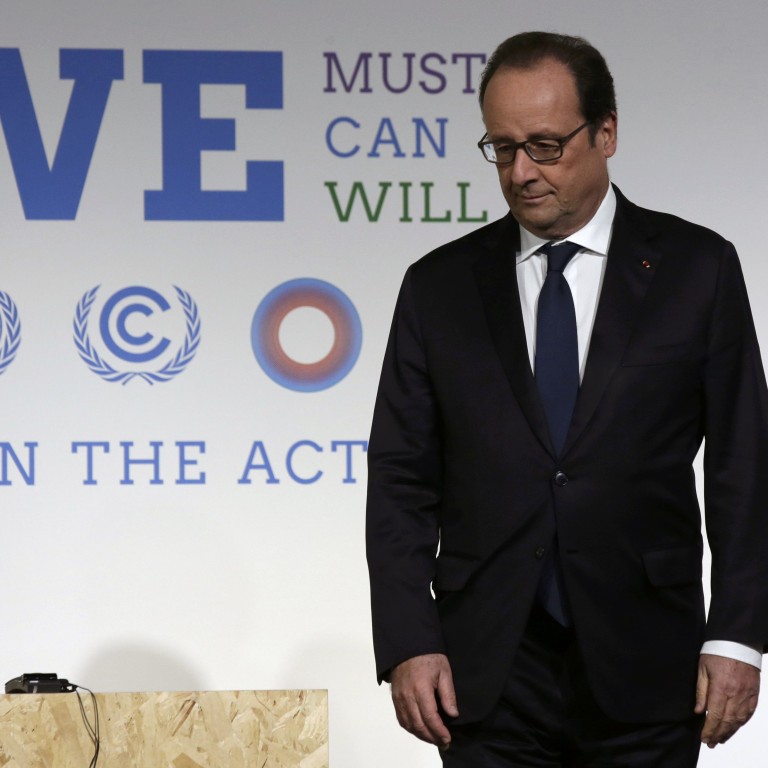
Draft pact reached at Paris summit to control climate change
Tough negotiations result in draft pact to fend off potentially damaging global warming
Negotiators from 195 nations delivered a blueprint yesterday for a pact to secure humanity from the consequences of rampant emissions of climate-altering greenhouse gases.
Despite being riddled with conflicting proposals on most key points, the draft drawn up after four years of tough talks is the skeleton of what has been described as the most complex and consequential global accord ever attempted.
The stakes are high. Ministers from across the world will descend on Paris to try from tomorrow to transform the draft into an agreement that can rein in emissions that trap the sun's heat, warming Earth's surface and oceans.
"In the words of Nelson Mandela, it always seems impossible until it is done," South Africa's negotiator Nozipho Mxakato-Diseko said after the 48-page draft accord was adopted to loud applause.
Scientists warn that our planet will become increasingly hostile for mankind as it warms, with rising sea levels that will consume islands and populated coastal areas, as well as catastrophic storms and severe droughts.
However, cutting emissions requires a shift away from burning coal, oil and gas for energy, as well as from the destruction of carbon-storing rainforests.
More than 50 personalities committed to combating climate change, from Sean Penn to US billionaire Michael Bloomberg and Chinese internet tycoon Jack Ma, gathered to inspire the United Nations conference at Le Bourget on the northern outskirts of Paris.
"Perhaps this is the most exciting time in human history," Penn told a special event at the conference.
"Those illusions of having too many difficult choices have always created chaos. Now we live in a time where there are no choices. We have certainty. The days of dreams have given way to the days of doing."
Negotiators seem confident they can avert a repeat of a similar effort that failed in the 2009 edition of the annual UN talks in Copenhagen, which aimed at a post-2012 deal but broke down, riven by recriminations between rich and poor nations.
It was two years after that failure, at Durban, South Africa, in 2011, that nations agreed to try again for a truly universal climate-saving pact.
Any deal emerging from Paris is likely to fall far short of what is needed to cap global warming at 2.0 degrees Celsius or below.
The key, analysts say, will be agreement on a review every five years at which nations' commitments may be strengthened.
There is still no agreement on fundamental issues: how fast and how far to slash greenhouse-gas emissions, who shoulders most of the burden and, critically, who should pay.
Poorer countries have demanded finance to pay for the costly shift to renewable technologies, as well as to cope with climate change.
At stake is hundreds of billions of dollars that would need to start flowing from rich to developing nations from 2020, under the planned Paris pact.
The biggest polluting nations, such as the United States and China, want to enshrine a target of 2 degrees above pre-Industrial Revolution levels.
But weaker nations most at risk want a much tougher target of 1.5 degrees, which would require the global economy to transform away from fossil fuels and be fully reliant on renewables by 2050.
The Paris conference is scheduled to conclude on Friday. But such deadlines are frequently ignored, with weary negotiators often slogging through the night to get an accord.
